Liberalism
This is the sighted version that was marked on May 4, 2021. There are 2 pending changes that still need to be sighted.
![]()
The title of this article is ambiguous. For international relations theory, see liberalism (international relations).
![]()
Liberale is a redirect to this article. For the party with the short name Liberale see New Liberals.
Liberalism (Latin liber, libera, liberum: "free"; liberalis "concerning freedom, liberal") is a basic position of political philosophy and a historical and current movement that strives for a liberal political, economic and social order. Liberalism emerged from the English revolutions of the 17th century. Liberal civil movements gave rise to nation states and democratic systems for the first time in many countries.
The guiding goal of liberalism is the freedom of the individual, primarily in the face of state power. It is therefore directed against state faith, collectivism, arbitrariness and the abuse of power or rule. Along with conservatism and socialism, it is counted among the three major political ideologies or worldviews that emerged in Europe in the 18th and 19th centuries.
Political Philosophy
Even though the term liberalism was first coined in Spain in 1812, its roots lie in the Enlightenment, from about 1650 onwards. At the centre of liberalism as a basic position of political philosophy is the individual. According to liberal conviction, the individual freedom of the person is the basic norm of every human society, towards which the state should orient its political and economic order. In this context, freedom is understood first and foremost as the absence of any violence or coercion, especially on the part of the state. In a narrower sense of liberal positions, the role of the state is limited to the concrete protection of the freedom of individuals and the legal order that guarantees freedom.
Liberalism stands in contrast to totalitarianism and is often regarded in the modern Western world as a prerequisite for a modern, pluralistic democracy. To the present day, even representatives of parties that are not explicitly liberal consider themselves liberals in the sense of the Enlightenment definition of liberalism. Liberalism established a justification for freeing oneself from ancient doctrines that advocated human unfreedom and legal inequality. Examples of such doctrines include feudalism, because it bound man to a feudal lord, and absolutism, which granted political power only to the king. Unlike anarchism, liberalism does not reject the state, but sees the nation-state as the guarantor of freedom and property. There are, however, quite different views as to what it has to do for this safeguarding and how far its tasks and rights should go.
The forefathers of Anglo-American liberalism are Hobbes and Locke. Pragmatism, utilitarianism and empirical rationalism are hardly separable from Anglo-American liberalism. Strict morality and charitable solidarity, on the other hand, are considered private matters to the liberal; in the United States they are often associated with religions and local churches. In this respect, private communitarianism complements public liberalism. Liberalism means, especially in the USA: "Pragmatic freedom from and to: rule and dogmas, religion and morals, society and laws". The free sanctifies the contract, also as a social contract, among equals (peers). Checks and balances, i.e. the balance of power, form the power ethic of liberalism.
Forms
"Liberalism" is a catch-all term for various political positions, although "what is common to all 'liberalisms' is difficult to bring under concrete, definable categories." However, various social areas can be identified in which the demand for individual freedom is concretized. Common to the different approaches is a high regard for individual freedom and self-responsibility. Every person should live as he or she wishes, as long as he or she does not infringe on the freedom of others. Democracy and nation are seen as means to protect the freedom of citizens. Freedom of opinion, belief and conscience are seen as prerequisites for self-realization and self-development.
The liberal movement was heterogeneous from the outset and was based on a broad spectrum of bourgeois demands for modernization vis-à-vis the state, the church, and society in almost all political, economic, social, and ideological areas. Even in the early conflicts of the nineteenth century, in which the goal of replacing absolutist-restorative and autocratic forms of rule with participatory models oriented to the idea of popular sovereignty was in the foreground, moderate liberal reformers competed with radical liberal revolutionaries for the interpretive sovereignty of the liberal worldview and were at times irreconcilably at odds with one another. While moderate liberalism saw the realization of liberties and the constitutional state in a constitutional monarchy as a sufficient political goal, democratic radicalism aimed at the complete restructuring of the state and society and sought the replacement of the monarchy by the republic in a nation-state that might have to be newly created.
After the realization of liberal constitutionalism, a crisis of liberalism occurred at the end of the 19th century and partly intensified after the First World War. The different assessment of the social question led to a split of liberalism into economic and social liberal approaches. As a reaction to the Great Depression, a German neoliberalism developed, namely ordoliberalism, which sought to overcome the problems of so-called laissez-faire liberalism by resorting to the scholastic idea of a "natural[ly], God-ordained order." At the end of the 20th century there was a revival of social liberal political philosophy, particularly in the USA, initiated by John Rawls.
Constitutional Liberalism
According to liberalism, the task of a constitution is to protect the natural rights of citizens from the omnipotence of the state. John Locke, one of the most important founders of liberalism, postulated liberty, life and property as inalienable rights of every citizen in his work Two Treatises of Government, published in 1689. The rights to liberty, life, and property are considered elementary human rights. The liberal constitution is intended to protect these human rights from arbitrary interference by the state by limiting the power of the state. These are to be protected from and by the state and have priority even over democratically brought about decisions.
John Stuart Mill, in his On Liberty, formulated the principle "that the only reason for which mankind, singly or united, has power to interfere with the liberty of action of any of its members is to protect itself. That the only purpose for which coercion may lawfully be exercised against the will of any member of a civilized society: to prevent the injury of others."
The protection of these natural rights is achieved by anchoring the separation of powers in the constitution in order to prevent the concentration of power. In addition to the horizontal separation of powers, the executive, legislative and judicial branches should be in balance and check each other (checks and balances) to prevent the accumulation and abuse of power by any one of them. Charles de Montesquieu is considered the founder of the concept of separation of powers with his book On the Spirit of the Laws published in 1748.
"As soon as in the same person or the same body of officers the legislative power is combined with the executive, there is no liberty."
- Of the Spirit of the Laws (De l'esprit des lois), XI, 6
In the 19th century, the concept of the liberal "constitutional state" was coined by German constitutional law doctrine, initially by Robert von Mohl. In contrast to the "power state" of absolutism, state power in the constitutional state is subject to the enlightened law of the law, mediated by the legality of the administration, procedural guarantees and possibilities of effective legal protection of a self-binding. All citizens are to be equal before the law, irrespective of class or religious differences. After the Second World War, this concept was supplemented by the aspect of the substantive rule of law: the validity of fundamental rights and the requirement of proportionality represent - in the sense of a substantive rule of law - an absolute barrier to state activity and also directly bind the legislature.
Economic Liberalism
→ Main article: Economic liberalism
Originally, "liberalism" was reserved as a designation for the political movement of liberalism. Since the beginning of the 20th century, the term has also been used to refer to economic policy positions advocated by classical national economics and traced back to Adam Smith. In distinction to other varieties of liberalism is spoken of economic liberalism. The foundations of economic liberalism are - following John Locke - private property and freedom of contract. Representatives of economic liberalism advocate free market economy and free trade in the tradition of classical national economics. They advocated the introduction of freedom of trade and the dissolution of the guilds.
In part, the right to property is traced back to natural law justifications, such as those already found in Hugo Grotius, Samuel Pufendorf and John Locke. The US Founding Fathers, for example, as well as the libertarian philosophers Robert Nozick and Ayn Rand in the 20th century, argue in this tradition of the natural law justification of property rights, although their liberal orientation is sometimes disputed. Property rights are then traced back to an original act of appropriation through labor in accordance with Lockean property theory. Consequentialist arguments going back to Adam Smith, Jeremy Bentham and John Stuart Mill often arrive at a similarly strong emphasis on private property rights. However, they justify them with incentives for efficient use, which leads to the increase of the common good. Unlike representatives of natural law, they thus justify property rights not primarily on the basis of considerations of justice, but on the basis of considerations of utility. Representatives of this form of consequentialist (or utilitarian) economic liberalism were the economists Ludwig von Mises, Friedrich Hayek, James M. Buchanan and Milton Friedman, as well as the legal theorist Richard A. Epstein.
In his work of the same name, Adam Smith traces the prosperity of nations back to the concept of the invisible hand, according to which the self-interested striving of people contributes to the welfare of society as a whole. Therefore, according to many economic liberals, free competition in a market economy is the optimal instrument of economic control. Representatives of classical economic liberalism, such as Jean Baptiste Say, accordingly assumed that market equilibrium would always be achieved without state intervention. Interventions by welfare state policies are therefore regarded as harmful. Under the influence of the teachings of classical national economics, the liberal model of a state whose tasks are limited primarily to the establishment of security and order and which intervenes as little as possible in economic processes ("laissez-faire") was widely accepted in the 19th century. This conception of the state was criticised by Ferdinand Lassalle as the so-called "night watchman state". However, after the Great Depression, many economic liberals acknowledged that the free market can be threatened not only by state intervention but also by oligopolies or cartel structures.
In reaction to the criticism of classical (economic) liberalism, new ideas developed which were initially subsumed under the term neoliberalism. In particular, ordoliberalism of the "Freiburg School", which is also one of the major influences in the development of the social market economy, thus called for a strong state that can counteract the impoverishment of the economy through regulatory policy. Market failures, for example in the case of so-called "external effects" such as environmental pollution, should, according to the economic liberal position, be overcome by instruments that conform to the market, such as emissions trading.
The Nobel Prize winner for economics Friedrich August von Hayek is considered one of the most important theorists of liberalism in the 20th century. Hayek, a prominent member of the Mont Pelerin Society, is regarded as the central integrating figure of economic liberalism not least because he influenced the development of three different economic schools at different stages of his life. First, as a student of Ludwig von Mises, he was instrumental in developing the positions of the Austrian School, including the critique of economic accounting in socialism. In 1950 he went to Chicago, where a re-evaluation of monopoly and cartel structures took place with his participation. Finally, in 1962, he was appointed to Freiburg, the center of German neoliberalism, where he elaborated his ideas on the state's "arrogation of knowledge," market-shaped "spontaneous orders," and "competition as a discovery process."
The ideas of Milton Friedman, winner of the Nobel Prize for Economics and a proponent of free trade and deregulation, had a strong influence on the development towards the market and competition that could be observed in large parts of the world in the second half of the 20th century. Friedman, who is regarded as an important representative of the Chicago School of economics, initially took up ideas from continental European neoliberalism. Unlike the latter, however, he took a rather sceptical view of regulatory competition control, similar to Hayek.
Since the concept of liberalism became associated with the political left (left-liberalism) in the United States after the New Deal and increasingly in the 1970s with the rise of philosophical egalitarian liberalism, economic liberal positions there are often referred to as libertarianism.
Social liberalism
→ Main article: Left-liberalism
Whereas for economic liberals the dismantling of state and feudal rule is usually regarded as sufficient to establish equality of opportunity, social liberals also want to correct inequalities of opportunity caused by society in a compensatory way. In order to minimize the restriction of individual autonomy, which is also undesirable for social liberals, help for self-help was propagated in the 19th century as a solution to the social question. The social liberal Hermann Schulze-Delitzsch, for example, advocated the promotion of cooperatives. Another typical liberal answer to the social question is qualification through a state-sponsored education policy. In the social market economy, representatives of ordoliberalism attempted to conceptually combine economic liberal positions with a management of social problems.
Against the background of the Great Depression, John Maynard Keynes - starting from a left-liberal political position - tried to make clear how anti-capitalist efforts (communist as well as fascist) could be prevented by maintaining and expanding the capitalist welfare state. How Keynes understands liberalism becomes clear in the articles Am I a Liberal? from 1925 or The End of Laissez-Faire from 1926. Keynes understands full employment as a condition of the possibility of bargaining power for trade unions. Increasing prosperity of the poorest, he argues, is optimal for growth in a market economy and thus ensures individual independence.
In John Rawls' egalitarian liberalism, equality of opportunity that is not merely formal but substantively fair has an important place. Rawls' theory of justice is considered a liberal conception because Rawls places freedom before redistribution. At most, individual freedom may be restricted in order to protect the freedom of others, not at all for reasons of social justice. Inequality, however, is only justified insofar as it also benefits the socially weakest members of a society.
Also in the liberal tradition since Immanuel Kant is the advocacy of freedoms as opportunities for realization, advocated by Amartya Sen and Martha Nussbaum. However, this approach, with its positive concept of freedom, is in tension with conventional forms of political liberalism. In more recent times, Isaiah Berlin and Charles Taylor have dealt with the positive and negative conception of freedom and its significance for different approaches in liberal political philosophy.
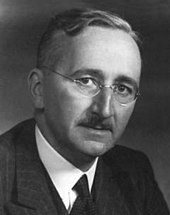
Friedrich August von Hayek
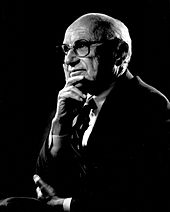
Milton Friedman
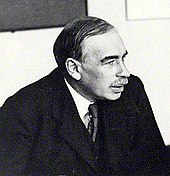
John Maynard Keynes
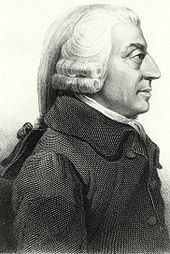
Adam Smith
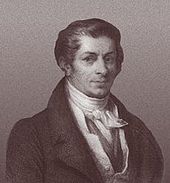
Jean-Baptiste Say
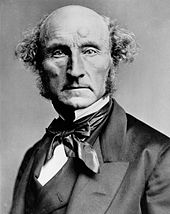
John Stuart Mill

The Capitol in Washington, the American parliament building. In the USA, important liberal constitutional principles had already been realized by the end of the 18th century.
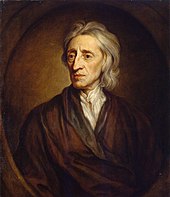
John Locke
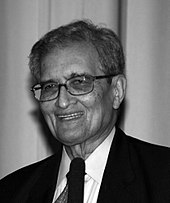
Amartya Sen
Search within the encyclopedia